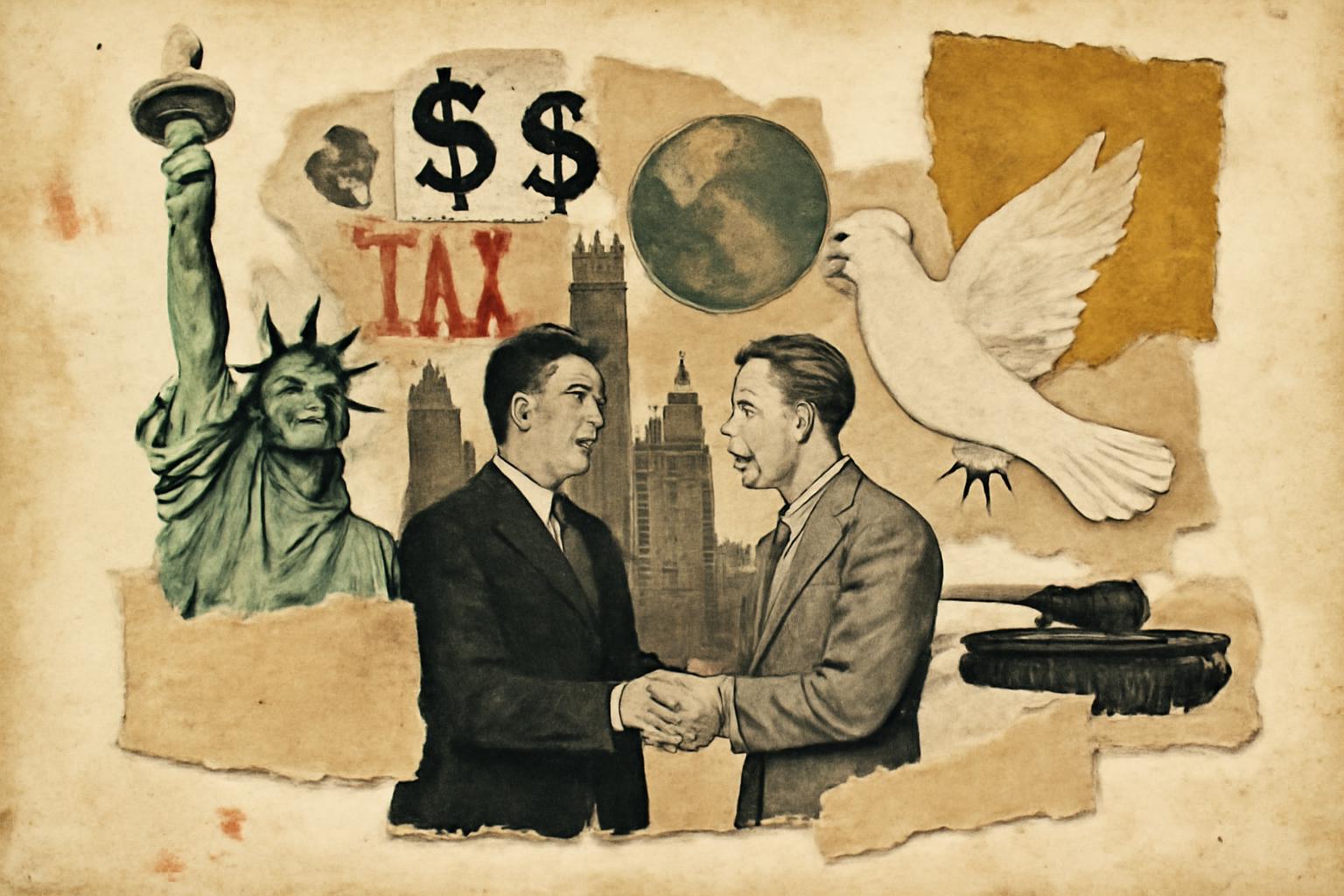The meeting produced signals of satisfaction from the participants, but no binding commitments emerged. The big story is that Europe would shoulder a large portion of the financial and security burden while Germany pressed for caution, and some talk of ground forces surfaced, framed as unity with the US and Europe but wrapped in the language of a peace framework. The takeaway is that the immediate goals are a ceasefire and intensified pressure on Moscow, while assurances on guarantees remain nonbinding and fragile. In short, more talk, more alliance rhetoric, but less actual constraint on what the state will do with your money and your freedom.
From a libertarian vantage, this is the anatomy of state meddling dressed up as diplomacy. Security guarantees, foreign aid, and coordinated pressure are not mere abstract policies; they are coercive transfers and redistributive commitments scraped together by politicians who claim to act in everyone’s name. Nozick teaches that a minimal state’s legitimate function is to protect rights, not to orchestrate entanglements abroad or to tax citizens to underwrite “security guarantees” for others. Rand would insist that rights are indivisible and that any obligation to defend strangers abroad arises only through voluntary, voluntary associations, not obligatory taxation or coerced sacrifice. Hayek would warn that the deeper danger is central planning masquerading as prudent strategy: even well-intentioned foreign policy becomes a grand design that misallocates knowledge and stokes dependence on the state’s omniscience.
The libertarian prescription is simple and uncomfortable for state-warmongers: cut the coercive pretenses. End long-term, compulsory funding for international defense agreements that no one can truly audit or constrain. If defense is to exist at all, it must be limited to the protection of individual rights, funded by voluntary contributions, contract-based defense providers, and competitive private security arrangements—not by a centralized tax-and-spend program that drags everyone into every regional conflict. Private, voluntary defense coalitions could form where there is genuine mutual interest, with prices and terms determined in open competition, not by congress and bureaucrats.
The humanitarian concern about abducted children and civilian suffering should be handled by civil society—private charities, humanitarian networks, and voluntary diplomacy—rather than by expanding the state’s war footing. The same logic applies to refugees and human rights abuses: relief and advocacy should flow through voluntary, decentralized channels, not through a coercive expansion of government power or a perpetual escalation of sanctions and military commitments.
As for the strategic aim to “force a ceasefire” and to escalate pressure on Moscow, a libertarian view would urge restraint. Coercive diplomacy and military escalation tend to breed dependency, retaliation, and cassette-leveled wars—precisely the sort of environment in which the state grows, not shrinks, and ordinary people pay the price. A Hayekian insight is that stable peace emerges from dispersed order, open markets, and voluntary cooperation, not from top-down coercion and massive state coalitions. A Nozickian lens sees any durable commitment to defend others as illegitimate unless all participants have consented under a legitimate, limited framework. Rand would insist that any peace must respect individual rights first, not collective prestige or geopolitical gamesmanship.
In practical terms, a libertarian stance would push to decentralize defense, shrink the fiscal footprint of foreign entanglements, and rely on voluntary, competitive, private arrangements for protection and aid. Reduce or sunset international interventions funded by taxation; replace them with privately financed defense pacts, insurance-based security, and humanitarian networks that operate with explicit consent and market incentives. Promote peaceful, open trade as a structural hedge against war—prosperity and cooperation, not coercion, as the best antidote to aggression. And insist that any response to aggression against civilians be anchored in voluntary, rights-respecting action, not in peacetime expansions of the state’s coercive reach. Rights, voluntary association, and free markets—not pacts cemented by coercive budgeting—are the durable foundations for peace.
